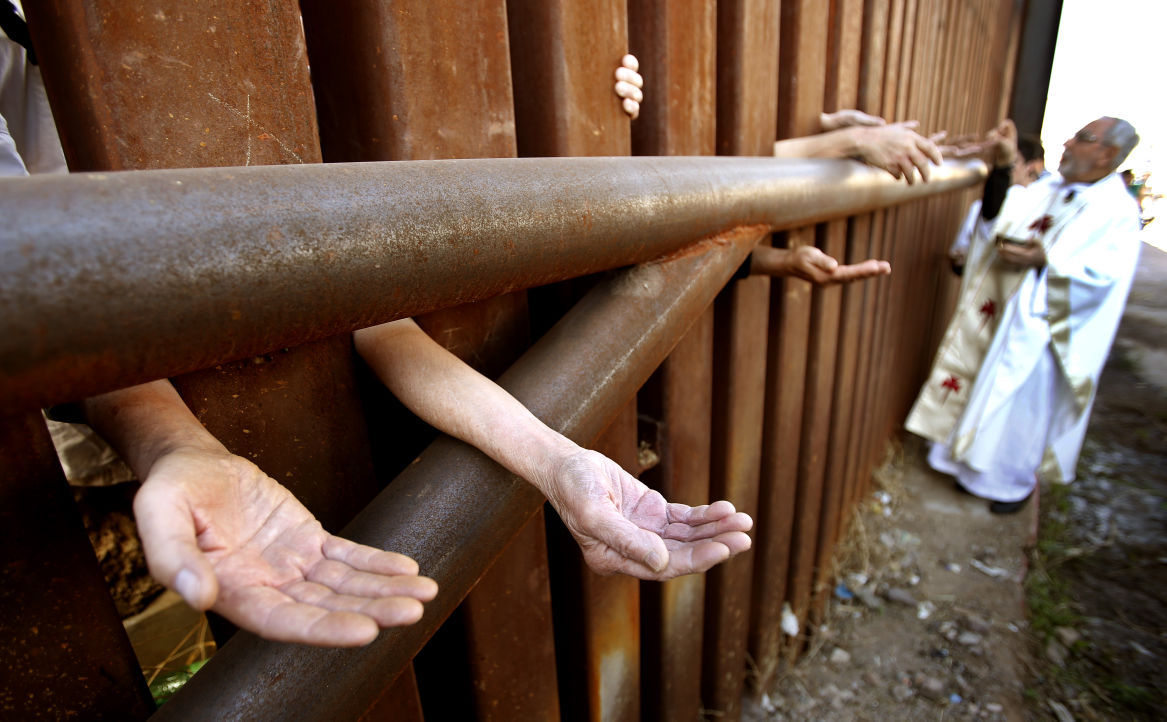Recently, Attorney General Jeff Sessions visited Nogales, Ariz., to see what life is like along the border. He heard, and supported, one narrative that says criminal behavior is predominant along the border. As people in our community know only too well, the reprehensible acts of drug trafficking, weapons trafficking and human trafficking are taking place at the border and of course, our government needs to confront and address these criminal behaviors.
Sessions also visited with U.S. Customs and Border Patrol officers and heard the difficulties they confront in their efforts to control the border. He encouraged their efforts and heralded their actions to detain and deport those crossing the border illegally. For sure, these public servants have a challenging mission, sometimes with their lives in danger.
Sadly, Sessions heard only part of the story.
Sessions did not hear another border narrative as real and as significant as that of those involved in border enforcement. He did not hear the voices of community leaders and residents who experience life on the border in person each day. This side of the narrative would have given Sessions a very different message about immigrants at our border in search of protection and a new life.
I wish Sessions had met Father Sean Carroll, S.J., and the staff of the Kino Border Initiative (KBI) working in Ambos Nogales. I wish he had crossed into Mexico and served breakfast to the migrants at the comedor staffed by KBI. Had he done so, he would have heard harrowing stories from those who have crossed the border and faced danger as they struggled to enter this country; stories of desperate situations that forced them to risk their lives to find a better living for themselves and their children.
Or, Sessions might have visited the women’s shelter KBI operates just across the border in Sonora, Mexico, to meet with mothers and children who have been deported and who are distressed about their immediate futures.
These are real people facing tremendous challenges. They want only to care for their children and to provide those children with a safe and dignified way of life. As the Attorney General would have learned, these people crossing the border are not criminals with intent to harm, and should not be treated as such.
I wish he had talked to some of the people who live along the border and who understand that the real solution to irregular migration lies not in massive deportation, building a wall, or deporting people without any hearing, but in reforming our immigration laws and in addressing the root causes of flight.
I wish Sessions had met with Tohono O’odham tribal leaders who are dealing with families living on the reservation on both sides of the border to learn that they also do not want to be separated from their families by a wall.
Had he heard the whole story, Sessions might understand that what is needed is that Congress and President Trump pass comprehensive immigration policy reform to mindfully correct current immigration issues. If the United States had a policy reflective of reality, which allowed workers to come to our country legally to work, kept families together and provided an earned pathway to citizenship, then Border Patrol and Customs could concentrate its efforts on apprehending true criminals along the border.
As the nation’s chief law enforcement officer, Attorney General Sessions should learn all the facts before reaching judgment on a very complex issue.
Mr. Attorney General, I invite you to come back to Nogales to hear the parts of the border story you missed.





